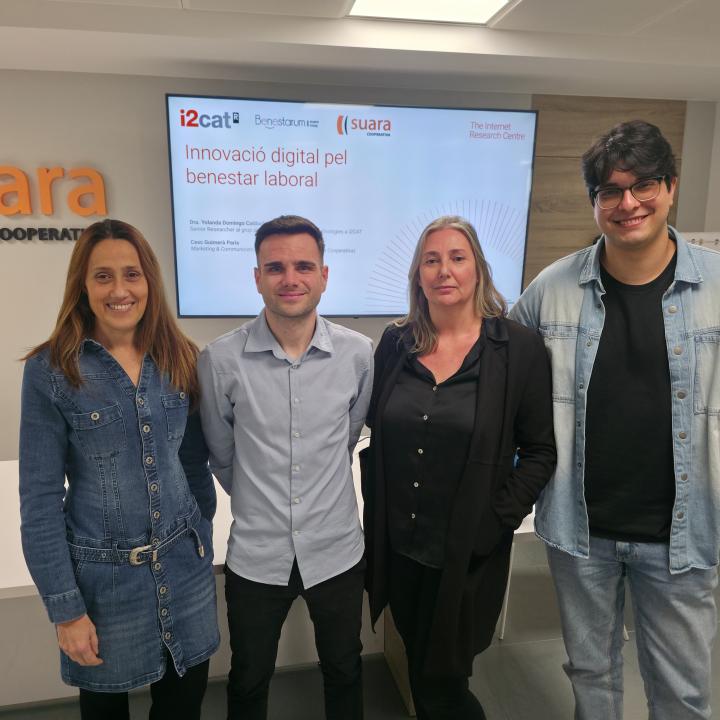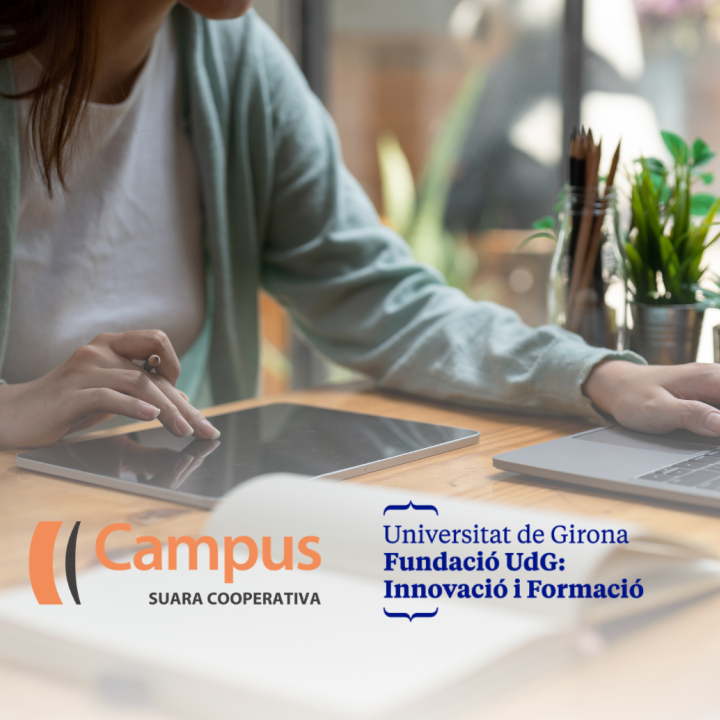New technologies not only bring innovative and disruptive solutions to the industrial world, they also open up new job opportunities for a whole generation full of capabilities and a more resilient attitude.
From the street you can already hear the chatter of a group of boys and girls of all ages playing in a pool. The little ones are in an inflatable pool full of toys and the rest are going in, out and jumping in with a chaotic, but totally logical choreography: everyone has their turn on the trampoline.
My friends ask the children to greet me, but not many pay attention to me. I understand them perfectly, I wouldn't say hello either.
They offer me very cool water and I start to catch up with everyone, but Blai comes running, a six-year-old boy who really likes talking to me since he knows that "I work with robots".
-I have decided that when I grow up I want to be a hacker! - he exclaims as he grabs my neck and hugs me.
Surely Blai doesn't know very well what a hacker's job is; what is the difference between hackers and crackers and that it is perhaps one of the best paid jobs in the world and much more common than we think. Blai knows nothing about all this and, even so, he is clear about what he wants to do when he is six years old.
It is quite possible that Blai's claim will fade over time, but what if the adults around Blai, the school and the institutions were in charge of feeding this dream?
The digital skills that the new generations of children and young people develop are directly related to the digitization of our current society. As is obvious, with this paradigm shift, digital literacy is no longer about pure office automation but encompasses more complex skills (such as programming tasks) and therefore becomes a constantly updating process.
This new digital society implies the emergence of new labor figures in charge of responding and pushing this digitization process. Therefore, on this International Literacy Day, we must also put on the table that it is essential that all citizens are trained in digital skills; otherwise, we will not be able to respond to the new challenges that arise as a result of a digitized society without leaving anyone behind.
How to work these skills with people?
As you might imagine, at Suara Cooperativa we don't just "work with robots". Educational Robotics is able to promote computational thinking from the age of 4 through meaningful play and spatial vision. The sequence sets that are created are the key to being able to develop complex programming language in the future. The Social Digital Lab Robotic Loan project provides robotics units to services for children and young people who want to promote the acquisition of new digital skills.
And since one thing ties in with the other, during the month of October we will bring the world of programming closer to our workers through different training sessions. The aim will be to discover new talents and for everyone who is interested to have the opportunity to see with their own eyes that programming is not just a matter of engineers or mathematics, as it may seem at first glance. Those workers you want, you can visit the Spiral of Knowledge as a matter of course so you don't miss it!
If we talk about new job markets, at Suara Cooperativa we also bet on crafts 4.0. If the first to make vases were clay artists, now there are new ways to create them through 3D printing. The products that can come out of these machines are of incomparable variety: from a travel saxophone to a dental prosthesis.
Through the project of the Suara 3D Laboratory, different professionals from the house get started in the world of digital manufacturing thanks to the Demo Makers; conferences that encourage the use of design and 3D machines in which the different applications of 3D printing are shown to direct care professionals.
At Suara Cooperativa we still don't know if little Blai will be able to become a hacker, but what we are clear about is that if he wants to succeed, he will have to work with us at some point.
We are waiting for you, little great geniuses of the future!
Bibliography
-Pérez-Escoda, A., Castro-Zubizarreta, A., & Fandos-Igado, M. (2016). Digital Skills in the Z Generation: Key Questions for a Curricular Introduction in Primary School.Communicate: Revista Científica Iberoamericana de Comunicación y Educación = Scientific Journal of Media Education: 49, 4, 2016, 71-79.
Margalida Calahorro-Bover
Innovation Technique, Community Makers and Circular Economy




